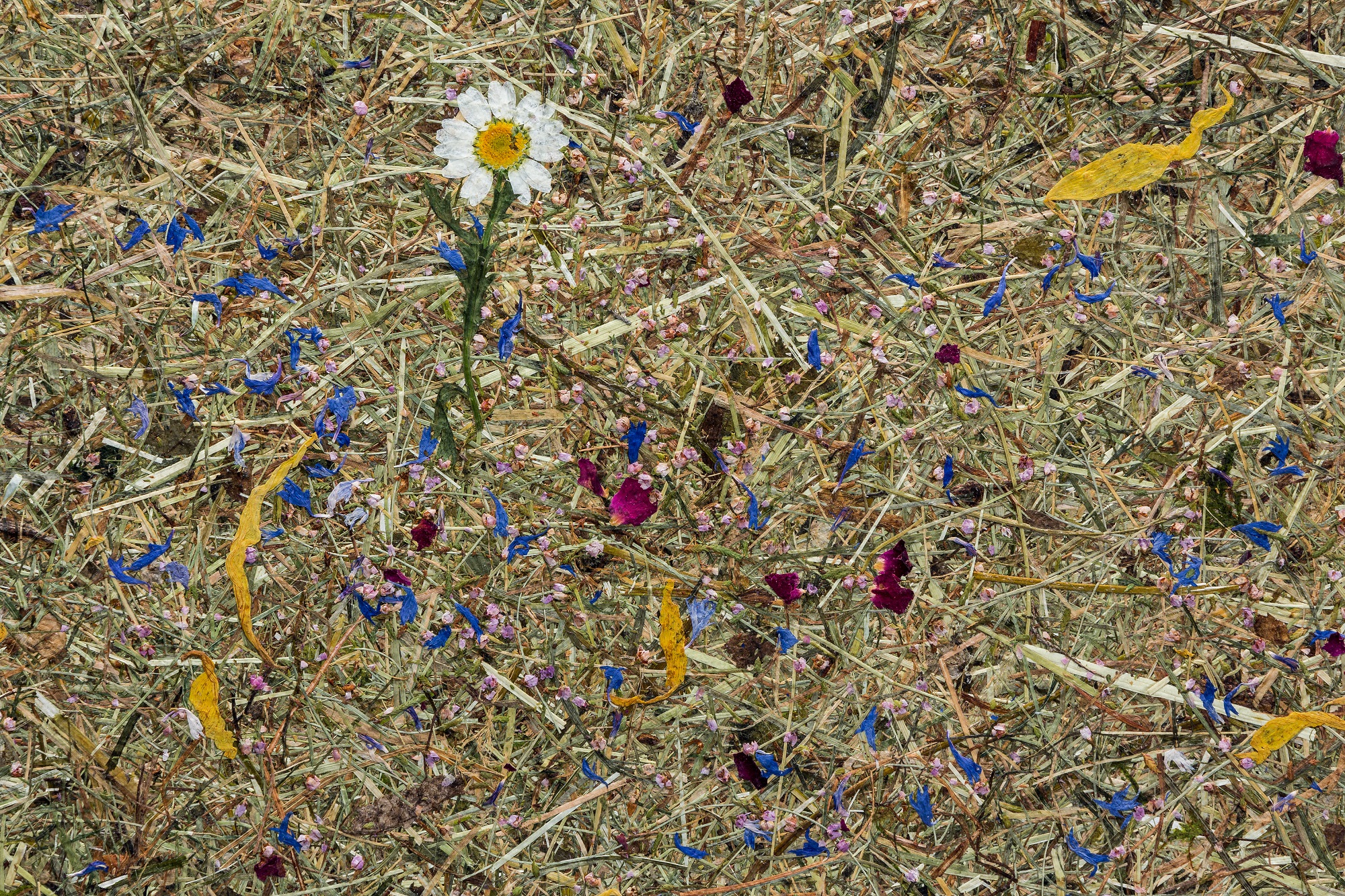
We’ve admired Organoid since they collaborated with Liberty on a beautiful window display. Natural materials – everything from alpine hay, petals, moss and coffee – are mixed with an ecological binding agent and then pressed into a thin layer. Organoid surfaces are practically emissions-free, are manufactured in a CO2-neutral process, and are 100 % biodegradable.
Beauty really is in the detail here, with small petals and single leaves applied to surfaces manually. Surfaces can be sealed with conventional oils, varnishes or resin coating to ensure they are water, scratch, light and abrasion-resistant.
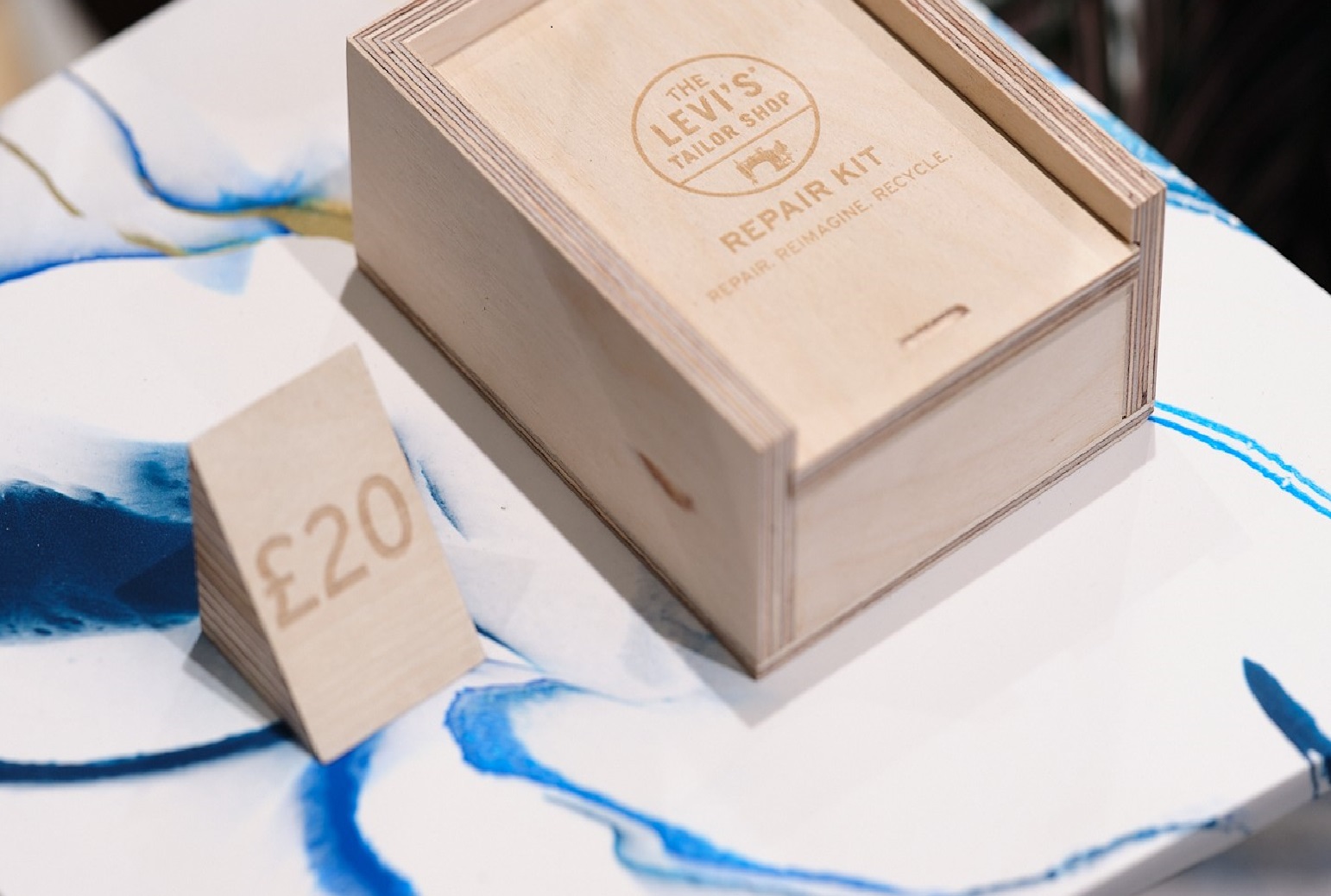
The ultimate chameleon material, Jesmonite can replicate virtually any surface, colour or texture. Made from a mineral base and pure water-based acrylic resin, it’s an eco-friendly alternative to resin, concrete or plaster. Mixed with other materials, such as pigments, ink, and metal fillers, to achieve different finishes, it is both durable and waterproof.
We used Jesmonite to create plinth stands at Levi’s sustainable concept space, Haus London – more on that here and pictured above. The marbling effect gave the look of Carrara marble in the brand’s on-brand blue palette.
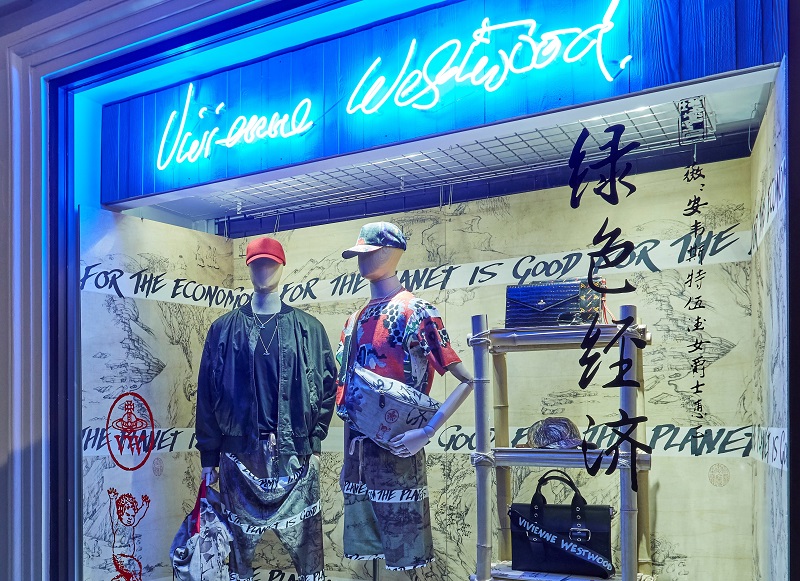
Re-board is a versatile and reasonably strong material. It’s particularly useful when print is used, for unusual shapes, or if construction is needed. It also requires very little energy to recycle.
We used reboard finished with PVC-free vinyl to form the backdrop of Vivienne Westwood’s windows, pictured above.
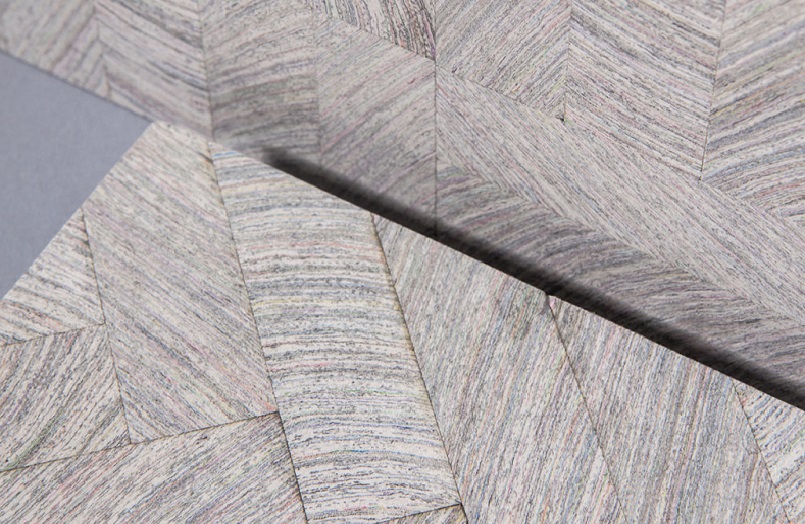
Newspaper Wood reverses a traditional production process, not from wood to paper, but from (news)paper to wood. When a Newspaper Wood log is cut, the layers of paper appear like wood grain or growth rings of a tree and, therefore, resemble the aesthetics of real wood.
Benefits are plentiful. The material already has an element of circularity and is created using relatively low emission. It is long-lasting and not easily damaged. It also has a high-quality finish.
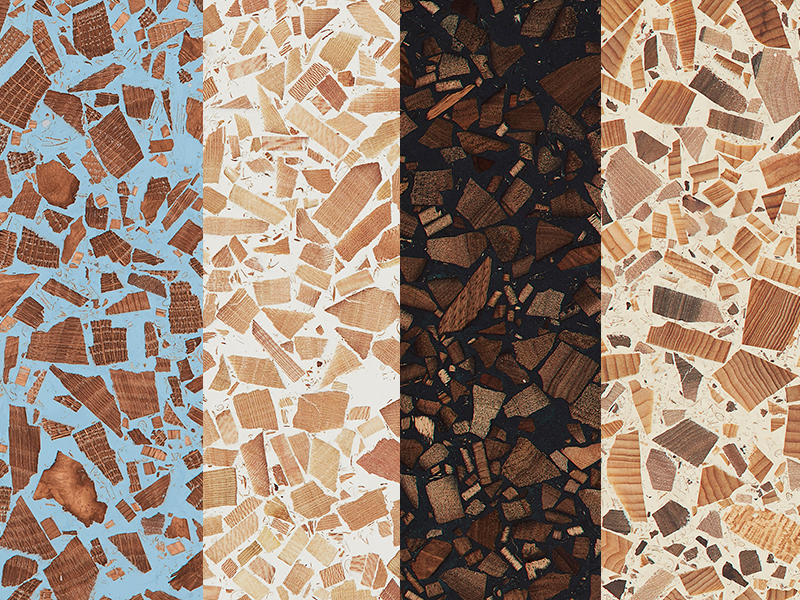
This beautiful material may look like terrazzo, but it’s actually made from wood chippings. Foresso is a relatively new material composed of timber, wood dust, cement, waste lime plaster, and 0% VOC resin cast onto an 18mm birch plywood substrate.
Foresso has established strict supply chain rules, sourcing only responsibly and ethically. It has a minimum of 75% recycled material sourced from British trees and is FSC Certified. It’s also long-wearing with a very high finish.
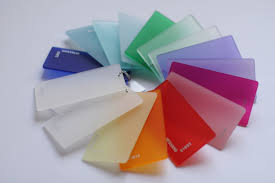
Greencast is an extremely high-quality cast acrylic made from 100% recycled consumer acrylic.
It’s the only 100% recycled plastic on the market with the same qualities as normal acrylic and comes in various colours and thicknesses. It also takes back used material to be recycled to increase its circularity.
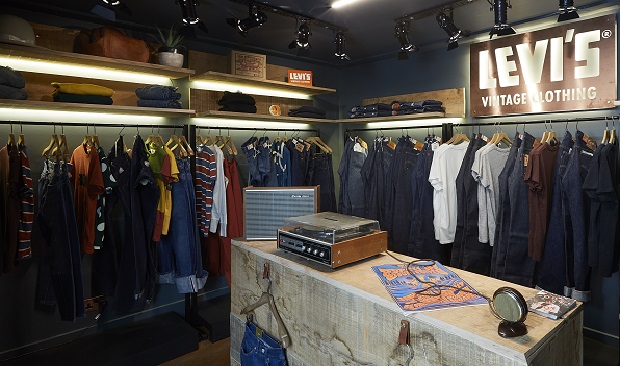
A more obvious choice but not to be overlooked. Locally sourced reclaimed wood is highly circular and can be sourced from many not-for-profit organisations. It saves resources, is long-lasting, and can be easily locally sourced. It’s also highly versatile, and different types can be used to inspire projects.
Take Levi’s CINCH store, pictured above, which Lucky Fox installed. Keen to reuse and recycle where possible, we repurposed wood previously used in the store to clad the walls into wood shelving.
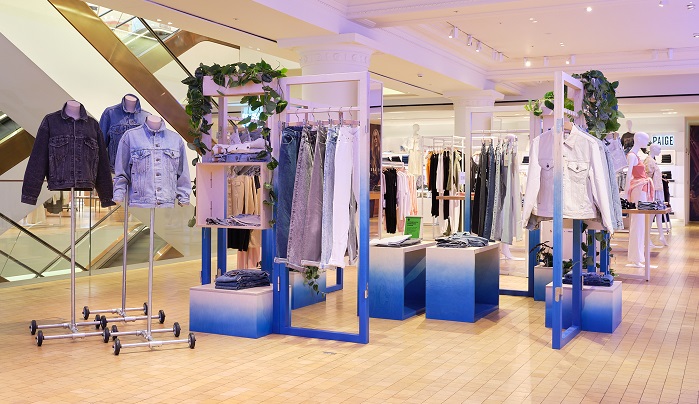
Sustainable plywood can be made from various woods. It’s long-lasting, very versatile and can be printed on. Recycled easily, it’s also cost-effective.
This pop-up in Selfridges, pictured above, was designed and installed by Lucky Fox. Sustainable plywood was used for the structure, meaning it’s durable, cost-effective, and also easily recyclable.
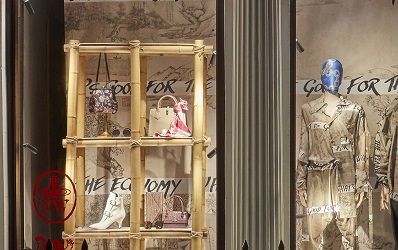
Bamboo fibres are particularly versatile, and bamboo can grow without fertilizers or pesticides. Some bamboo materials are 100% biodegradable and the plant itself creates 35% more oxygen when compared to similar plants.
It is cost-effective and versatile, and most of the materials are biodegradable. Some bamboo plastics have a biodegradable plastic composite too.
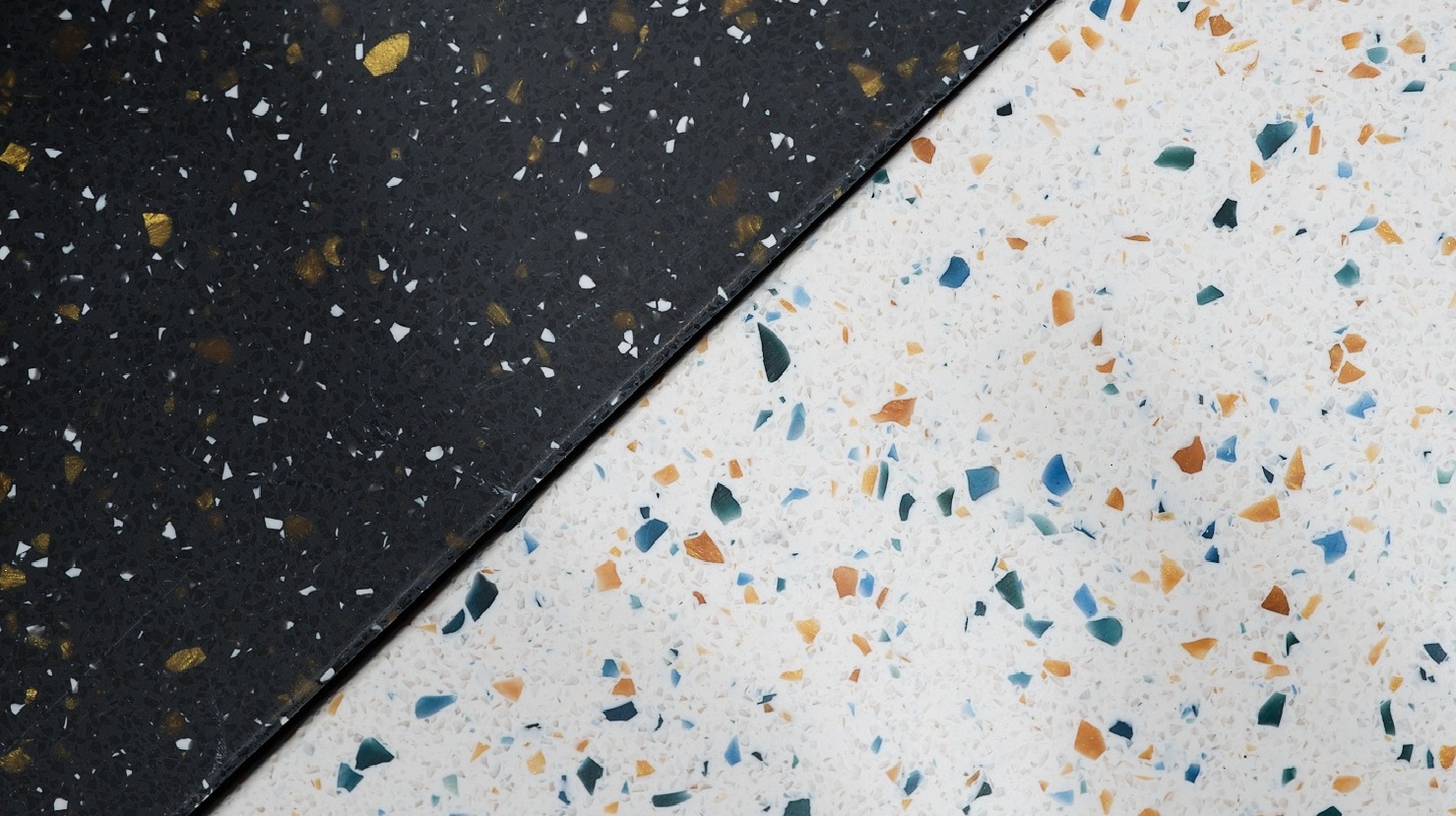
Terrazzo-effect Durat is a sustainable solid surface material that contains recycled post-industrial plastic and is 100% recyclable. It can be made into seamless surfaces and refinished, making it perfect for high-use areas like retail stores.
This incredibly versatile material formed the worktops for Levi’s concept space, which we collaborated on in 2020. More on that here.